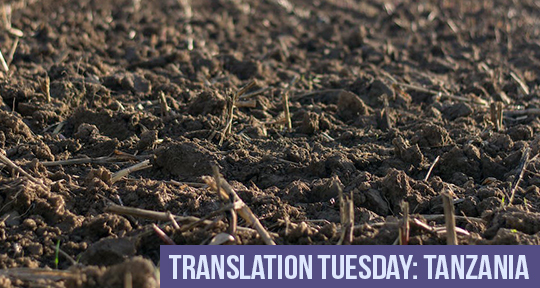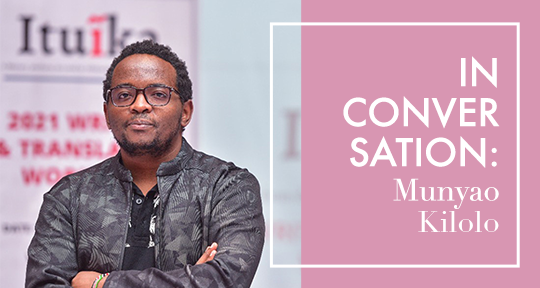This Translation Tuesday, we deliver gripping fiction from Tanzania, a short story of domestic deception that spawns an unspeakable being, a sinister spirit. Who is to say who is at fault? Hear from translator Jay Boss Rubin on bringing Esther Karin Mngodo’s The Garden of Tomatoes into the English:
“In this story, I was fascinated with how it contains genre elements but is not really genre fiction. There’s a genre element, for sure, but we stayed away from terms such as “vampire” and “zombie” because of all the associations those carry. There’s also an element of free indirect discourse, one that I was aware of in the Swahili, but that came out more in the translation, toward the end of the revision process. Esther was also especially helpful in drawing my attention to moments in the story where the main character’s own words, or her words and actions, might contradict each other. These moments of ambivalence, or rich ambiguity, really, are central to my understanding of the characters in “Atuganile,” the forces that push and pull on them.“
Tuntufye Mwasakyeni raised his cup of milky tea to his mouth and sipped. The house was quiet, different than most Saturdays. Two days had passed since his wife, Atuganile, had left to go see her mother’s ailing brother over in Chunya District—around two hours away by automobile.
Tuntufye placed the index finger of his left hand on the table in front of him so it mimicked the second hand of the clock on the wall. Departing for her trip, Atuganile had promised that she’d be back by Saturday at nine. It was now eight minutes to 9am. He wasn’t worried that something bad had happened to her—not in the least. He was well aware that if there were some shrewd, intelligent women there in Isyesye, Atuganile was one of them. She was a known quantity, especially in Uyole, where she vended fruits and vegetables. But it wasn’t like her to be late.
When it reached nine on the dot, Tuntufye stood up and went outside through the door in the living room. He leaned against one of the white, exterior pillars, keeping his eyes peeled for Atuganile. When he saw her, he grinned. She was striding forward like a champion athlete, her kanga coming undone and starting to fall down as she ran. Colonnades of trees to Atuganile’s left and to her right framed the scene of her arrival. Their branches swayed in the wind like giant claws—as if to swipe at her and sneer, today, Atu, you’re going to get it.
Once she’d drawn close, Atuganile set down the load she’d been carrying on her head and began explaining the reasons for her delay. “Forgive me, my husband. Forgive me, Baba,” she gasped. “The bus broke down. I had to hop aboard a different one. You know how difficult transportation can be here in Mbeya. Forgive me, Baba, for being late.”
Her husband said nothing. He jutted his lip forward, returned to the kitchen, sat down at the table and poured himself another cup of tea. Then he took his Bible and began reading. Atuganile sat with him and started sorting kisamvu, separating the good greens from the bad. In the middle of sorting, she picked up a sheet of Isyesye Oye!, the newspaper that had been used to wrap the cassava leaves. Alert: Blood Drinker on the Loose in Isyeye, the headline warned. Atuganile read on:
An individual in Isyesye is being sought by police for abducting children younger than twelve. According to the information available, five children have now disappeared as a result of coming into contact with the suspect, who is said to be a drinker of blood. Parents are advised to keep close watch over their children, and see that they don’t roam about after dark.
The newspaper described the child of one woman, known as Mama Samweli, who’d been missing for five days. When Mama Samweli went for a consultation with a local healer, the mganga advised her not to bother searching—her child had already had the life sucked out of them. When news of the blood drinker reached the Regional Police Chief, he stated that the government does not officially recognize witchcraft, so he was unable to comment on the rumor any further. But he assured the citizenry that efforts were ongoing to locate Samweli, along with the other four children who had gone missing over the past five months.


